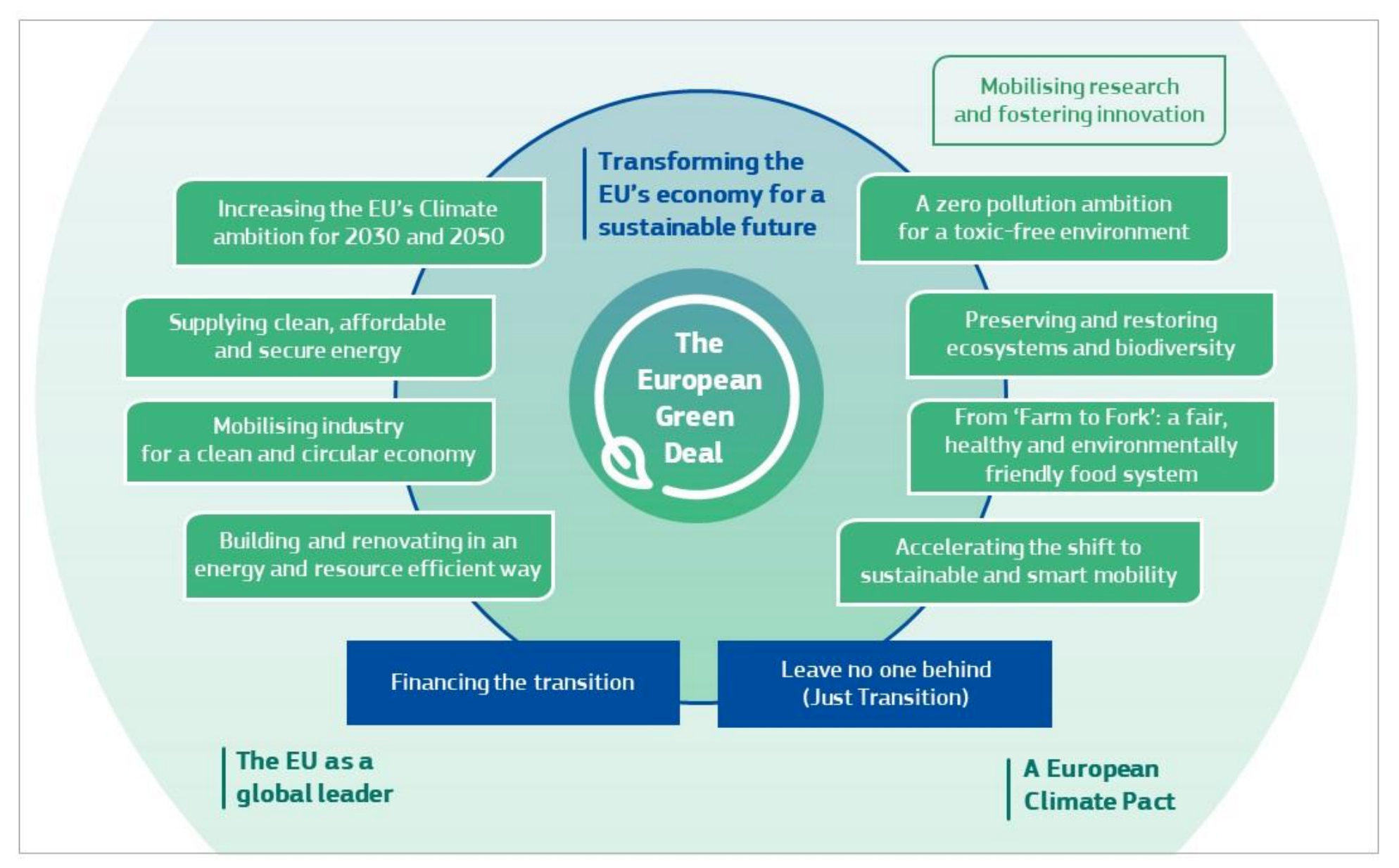The European Commission recently announced The European Green Deal – a roadmap for making the EU’s economy sustainable by turning climate and environmental challenges into opportunities across all policy areas and making the transition just and inclusive for all.
The European Green Deal provides a roadmap with actions to boost the efficient use of resources by moving to a clean, circular economy and stop climate change, revert biodiversity loss and cut pollution. It outlines the investments needed and financing tools available and explains how to ensure a just and inclusive transition.
The European Green Deal covers all sectors of the economy, notably transport, energy, agriculture, buildings, and industries such as steel, cement, ICT, textiles and chemicals. To set into legislation the political ambition of being the world’s first climate-neutral continent by 2050, the Commission will present within 100 days the first ‘European Climate Law’.
More information about this new roadmap can be accessed on this link

Climate change and environmental degradation present an existential threat to Europe and the world. To overcome this challenge, Europe needs a new growth strategy that transforms the Union into a modern, resource-efficient and competitive economy where there are no net emissions of greenhouse gases by 2050, where economic growth is decoupled from resource use and where no one and no place is left behind.
The Green Deal Communication sets the path for action in the months and years ahead. The Commission’s future work will be guided by the public’s demand for action and by undeniable scientific evidence underpinned by broad consultation.
According to the press release, an overwhelming majority of Europeans consider that protecting the environment is important (95%). Almost 8 in 10 Europeans (77%) say that the protection of the environment can boost economic growth. The results of the Eurobarometer survey concerning environmental attitudes of EU citizens confirm the wide public support for environmental legislation at EU level and EU funding for environmentally friendly activities.
So will this new Green Deal affect the European Chemical Industry and the Plastics Market? Being climate-neutral and enforcing a circular economy means that the chemical/petrochemical/synthetic materials producers have to be mindful of their greenhouse gas emissions, their water usage, their energy usage, and raw material use. The toxicity and end-of-life for their products need to be accounted for.
“About half of total greenhouse gas emissions and more than 90% of biodiversity loss and water stress come from resource extraction and processing of materials, fuels and food. The EU’s industry has started the shift but still accounts for 20% of the EU’s greenhouse gas emissions. It remains too ‘linear’, and dependent on a throughput of new materials extracted, traded and processed into goods, and finally disposed of as waste or emissions. Only 12% of the materials it uses come from recycling”
The decarbonisation and modernisation of energy-intensive industries, such as steel, chemicals, and cement, will be essential under this new roadmap according to the report. Some of the recommendations include
- Creating markets for climate-neutral and circular products, for example by making more strategic use of public procurement to select sustainable products and services.
- Developing large-scale pilot projects on clean technologies, with the aim to bring them to the market. They should be supported with EU funds and by easier access to private financing.
- Switching to alternative climate-neutral energy and feedstock sources. This would require, for example, securing access to and availability of such sources at globally competitive prices, mapping energy infrastructure and supply and promoting the ‘energy efficiency first’ principle.
Bioplastics could play a crucial role in this transition according to the European Bioplastics organisation. EUBP says it will engage in constructive discussions to explain in further detail the innovative potential of bioplastics and their crucial contribution to achieving the Green Deal.
FOLLOW ME ON THESE SPACE“Bio-based plastics can make a strong contribution as they use sustainably sourced biomass as feedstock for their production. They help to diminish the dependency on fossil resources and reducing the emission of greenhouse gases. Mechanical or chemical recycling of those bio-based plastics further adds to the reduced environmental footprint of these products. The same applies to biodegradable and compostable plastics as they increase recyclability-options by adding composting and helping to create clean organic waste streams”- EUBP
Discussion
Comments are closed.